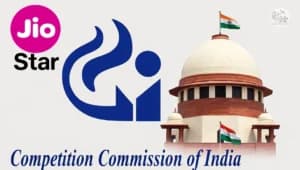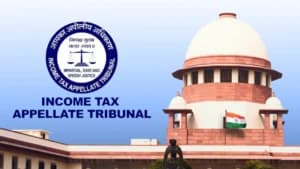The Supreme Court of India has clarified that courts do not have the authority to grant compensation to an accused for wrongful confinement while exercising jurisdiction under Section 439 of the Code of Criminal Procedure (CrPC). The Court emphasized that the jurisdiction under Section 439 CrPC is limited to granting or refusing bail and does not extend to awarding compensation for alleged wrongful detention.
In a significant ruling, a bench comprising Justice Sanjay Karol and Justice Manmohan set aside an order passed by the Allahabad High Court, which had directed the Narcotics Control Bureau (NCB) to pay ₹5 lakh as compensation to an accused, Man Singh Verma, for alleged wrongful confinement in a drug case.
Background of the Case:
The case originated in January 2023 when the NCB seized approximately 1,280 grams of brown powder from the possession of Man Singh Verma and another individual. The substance was suspected to be heroin, and a criminal case was registered under the Narcotic Drugs and Psychotropic Substances (NDPS) Act. Verma was subsequently remanded to judicial custody.
Read Also:- Supreme Court Clarifies Contributory Negligence in Motor Accident Claims:: No Presumption Without Evidence
The NCB sent two samples of the seized substance to the Central Revenues Control Laboratory (CRPL) for forensic testing. On 30th January 2023, the CRPL report indicated that the samples tested negative for heroin or any other narcotic substance. Despite this, the NCB sought permission to send a second set of samples to the Central Forensic Science Laboratory (CFSL) for further testing, which was granted by the court.
On 5th April 2023, the CFSL report also confirmed that the second set of samples did not contain any narcotic substance. Consequently, the NCB filed a closure report, and Verma was released from custody on 10th April 2023.
High Court’s Order:
Despite Verma’s release, the Allahabad High Court continued to adjudicate his earlier bail application. In its order dated 22nd May 2024, the High Court observed that Verma had been wrongfully confined for four months and directed the NCB to pay ₹5 lakh as compensation. The High Court also required the NCB to file a compliance affidavit within two months.
The NCB challenged this order in the Supreme Court, arguing that the High Court had overstepped its jurisdiction by awarding compensation in a bail application.
Read Also:- Supreme Court Protects Advocates from Criminal Liability Over Power of Attorney Verification
The Supreme Court held that the High Court’s direction to grant compensation was beyond the scope of Section 439 CrPC. The Court reiterated that the jurisdiction under this section is limited to granting or refusing bail and does not extend to awarding compensation for wrongful confinement.
“It is a settled principle of law that the jurisdiction conferred upon a Court under Section 439 CrPC is limited to grant or refusal of bail pending trial,” the Court observed.
The Court further noted that once the accused was released and the closure report was filed, the bail application had become infructuous. Therefore, the High Court should have dismissed the application instead of delving into the issue of compensation.
“No occasion arose for the Court to pass an order delving into the aspects of impermissibility of re-testing and/or wrongful confinement. Not only was the same outside the bounds, as discussed above, but it is erroneous on a further count that since the application was infructuous, the exercise of jurisdiction was entirely unjustified and contrary to law,” the Court stated.
Read Also:- TCS Manager Manav Sharma's Tragic Demise: A Call to Address Men's Mental Health Amid Marital Strife
The respondent had referred to several precedents, including Rudal Sah v. State of Bihar, Nilabati Behera v. State of Orissa, and D.K. Basu v. State of West Bengal, where compensation was awarded for illegal confinement. However, the Supreme Court clarified that these cases were adjudicated under Article 32 of the Constitution, which deals with the enforcement of fundamental rights. The Court emphasized that the present case did not involve a violation of fundamental rights, and no such remedy was sought by the respondent.
“The undue restriction of liberty, i.e., without the backing of procedures established by law is unquestionably an affront to a person’s rights but the avenues to seek recourse of law in connection therewith are limited to remedies as per law. However, none was availed in the present facts,” the Court observed.
Case : Union of India Thr. I.O Narcotics Control Bureau vs. Man Singh Verma















